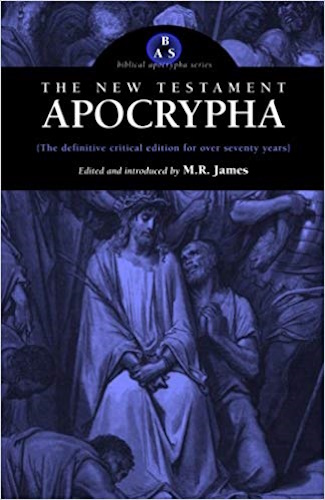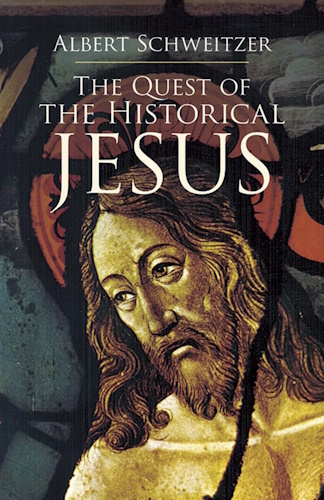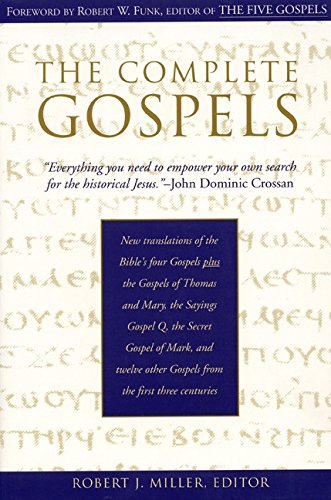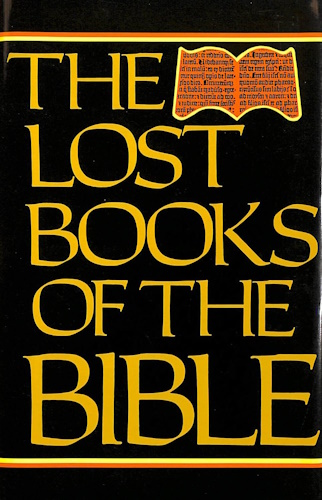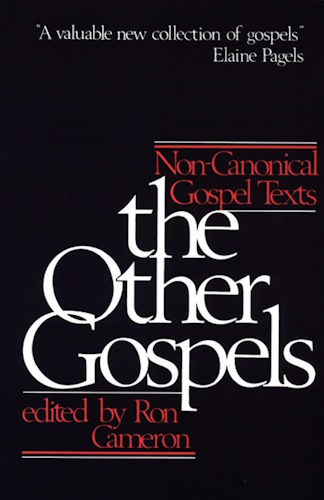
The SECOND EPISTLE of CLEMENT to the CORINTHIANS.
From "The Lost Books Of The Bible"
edited by Rutherford H. Platt, Jr. [1926]
Translated by Archbishop Wake
[Archbishop Wake is the translator of this Second Epistle, which he says was not of so great reputation among the primitive Fathers as the first. He defends it notwithstanding; and in answer to those who objected to Clement's First Epistle, that it did not duly honour the Trinity, the Archbishop refers to this as containing proof of the writer's fulness of belief on that point.]
CHAPTER 1
That we ought to value our salvation; and to show that we do, by a sincere obedience.
1. Brethren, we ought so to think of Jesus Christ as of God as of the judge of the living and the dead; nor should we think any less of our salvation.
2. For if we think little things of him, we shall hope only to receive some small things from him.
3. And if we do so, we shall sin; not considering from where we have been called, and by whom, and to what place; and how much Jesus Christ condescended to suffer for our sakes.
4. What recompense then shall we render unto him? Or what fruit that may be worthy of what he has given to us?
5. For indeed, how great are those advantages which we owe to him in relation to our holiness? He has illuminated us; as a father, he has called us his children; he has saved us who were lost and undone.
6. What praise shall we give to him? Or what reward that may be answerable to those things which we have received?
7. We were defective in our understandings, worshipping stones and wood, gold, and silver, and brass, the works of men's hands; and our whole life was nothing else but death.
8. But being surrounded by darkness, and having such a mist before our eyes, we have looked up, and through his will have laid aside the cloud with which we were surrounded.
9. For he had compassion upon us, and being moved in his affection towards us, he saved us, having beheld in us much error and destruction, and seen that we had no hope of salvation, but only through him.
10. For he called us who were not, and was pleased from nothing to give us being.
CHAPTER 2
1. That God had before prophesied by Isaiah that the Gentiles should be saved. 8. That this ought to engage them especially to live well, without which they will still miscarry.
1. Rejoice, you barren that bear not, break forth and cry you that travail not; for she that is desolate has many more children than she that has an husband. [Isa. 54:1]
2. In that he said, Rejoice you barren that bear not, he spoke of us: for our church was barren before children were given to it.
3. And again; when he said, Cry you that travail not; he implied thus much: That after the manner of women in travail, we should not cease to put up our prayers to God abundantly.
4. And for what follows, because she that is desolate has more children than she that has an husband: it was therefore added, because our people which seem to have been forsaken by God, now believing in him, are become more than they who seemed to have God.
5. And another Scripture saith, I came not to call the righteous but sinners. The meaning of which is this: that those who were lost must be saved. [Matt. 9:13]
6. For that is, indeed, truly great and wonderful, not to confirm those things that are yet standing, but those which are falling.
7. Even so did it seem good to Christ to save what was lost; and when he came into the world, he saved many, and called us who were already lost.
8. Seeing then he has showed so great mercy towards us; and chiefly for that, we who are alive, do now no longer sacrifice to dead gods, nor pay any worship to them, but have by him been brought to the knowledge of the Father of truth.
9. Whereby shall we show that we do indeed know him, but by not denying him by whom we have come to the knowledge of him?
10. For even he himself saith, Whosoever shall confess me before men, him will I confess before my Father [Matt. 10:32, 33]. This therefore is our reward if we shall confess him by whom we have been saved.
11. But, wherein must we confess him? Namely, in doing those things which he says, and not disobeying his commandments: by worshipping him not with our lips only, but with all our heart, and with all our mind. For he says in Isaiah: This people honors me with their lips, but their heart is far from me. [Isa. 29:13]
12. Let us then not only call him Lord; for that will not save us. For he says: Not every one that says to me Lord, Lord, shall be saved, but he that does righteousness. [Matt. 7:21]
13. Wherefore, brethren, let us confess him by our works; by loving one another; in not committing adultery, not speaking evil against each other, not envying one another; but by being temperate, merciful, good.
14. Let us also have a mutual sense of one another's sufferings; and not be covetous of money: but let us by our good works confess God, and not by those that are otherwise.
15. Also let us not fear men, but rather God. Wherefore, if we should do such wicked things, the Lord has said: Though you should be joined to me, even in my very bosom, and not keep my commandments, I would cast you off, and say to you: Depart from me; I know not where you are, you workers of iniquity. [Matt. 7:23; Luke 13:26, 27]
CHAPTER 3
1. That while we secure the other world, we need not fear what can befall us in this. 5. That if we follow the interests of this present world, we cannot escape the punishment of the other. 10. Which ought to bring us to repentance and holiness, 14. and that quickly: because in this world is the only time for repentance.
1. Wherefore, brethren, leaving willingly for conscience sake our sojourning in this world, let us do the will of him who has called us, and not fear to depart out of this world.
2. For the Lord saith, You shall be as sheep in the midst of wolves [Matthew 10:16]. Peter answered and said, What if the wolves shall tear in pieces the sheep? Jesus said to Peter, Let not the sheep fear the wolves after death: also fear not those that kill you, and after that have no more that they can do to you; but fear him who after you are dead, has power to cast both soul and body into hell-fire. [Luke 12:4, 5]
3. For consider, brethren, that the sojourning of this flesh in the present world is but little, and of a short continuance, but the promise of Christ is great and wonderful, even the rest of the kingdom that is to come, and of eternal life.
4. What then must we do that we may attain to it? We must order our conversation holily and righteously, and look upon all the things of this world as none of ours, and not desire them. For, if we desire to possess them we fall from the way of righteousness.
5. For thus says the Lord, No servant can serve two masters. If therefore we shall desire to serve God and Mammon it will be without profit to us [Luke 16:13]. For what will it profit, if one gain the whole world, and lose his own soul? [Matthew 16:26]
6. Now this world and that to come are two enemies. This speak of adultery and corruption, of covetousness and deceit; but renounces these things.
7. We cannot, therefore, be the friends of both; but we must resolve by forsaking the one, to enjoy the other. And we think it is better to hate the present things, as little, short- lived, and corruptible, and to love those which are to come, which are truly good and incorruptible.
8. For, if we do the will of Christ, we shall find rest: but if not, nothing shall deliver us from eternal punishment if we shall disobey his commands. For even thus says the Scripture in the prophet Ezekiel, If Noah, Job, and Daniel should rise up, they shall not deliver their children in captivity. [Ezekiel 14:14, 20]
9. Wherefore, if such righteous men are not able by their righteousness to deliver their children; how can we hope to enter into the kingdom of God, except we keep our baptism holy and undefiled? Or who shall be our advocate, unless we shall be found to have done what is holy and just?
10. Let us therefore, my brethren, contend with all earnestness, knowing that our combat is at hand; and that many go long voyages to encounter for a corruptible reward.
11. And yet all are not crowned, but they only that labor much, and strive gloriously. Let us, therefore, so contend that we may all be crowned. Let us run in the straight road, the race that is incorruptible: and let us in great numbers pass into it, and strive that we may receive the crown. But and if we cannot all be crowned, let us come as near to it as we are able.
12. Moreover, we must consider, that he who contends in a corruptible combat, if he be found doing anything that is not fair, is taken away and scourged, and cast out of the lists. What think ye then that he shall suffer, who does anything that is not fitting in the combat of immortality?
13. Thus speaks the prophet concerning those who keep not their seal; Their worm shall not die, and their fire shall not be quenched; and they shall be for a spectacle to all flesh. [Isaiah 66:24]
14. Let us therefore repent, while we are yet upon the earth: for we are as clay in the hand of the artificer. For as the potter, if he make a vessel, and it be turned amiss in his hands, or broken, again forms it anew; but if he has gone so far as to throw it into the furnace of fire, he cannot more bring any remedy to it.
15. So we, while we are in this world, should repent with our whole heart for whatsoever evil we have done in the flesh; while we have yet the time of repentance, that we may be saved by the Lord.
16. For after we shall have departed out of this world, we shall no longer be able to confess our sins or repent in the other.
17. Wherefore, brethren, let us be doing the will of the Father, and keeping our flesh pure, and observing the commandments of the Lord, lay hold on eternal life: for the Lord saith in the gospel, If ye have not kept that which was little, who will give you that which is great? For I say to you, he that is faithful in that which is least, is faithful also in much. [Luke 16:10]
18. This, therefore, is what he is saying: keep your bodies pure, and your seal without spot, that you may receive eternal life.
CHAPTER 4
1. We shall rise, and be judged in our bodies; therefore we must live well in them, 6. that we ought, for own interest, to live well; though few seem to mind what really is for their advantage, 10. and not deceive ourselves: seeing God will certainly judge us, and render to all of us according to our works.
1. And let not any one among you say, that this very flesh is not judged, neither raised up. Consider, in what were you saved; in what did you look up, if not while you were in this flesh.
2. We must, therefore, keep our flesh as the temple of God. For in like manner as ye were called in the flesh, ye shall also come to judgment in the flesh. Our one Lord Jesus Christ, who has saved us, being first a spirit, was made flesh, and so called us; even so we also shall in this flesh receive the reward.
3. Let us, therefore, love one another, that we may attain to the kingdom of God. While we have time to be healed, let us deliver up ourselves to God our physician, giving our reward to him.
4. And what reward shall we give? Repentance out of a pure heart. For he knows all things beforehand, and searches out our very hearts.
5. Let us, therefore, give praise to him, not only with our mouths, but with all our souls so he may receive us as children. For so the Lord has said: They are my brethren, who do the will of my Father. [Matthew 12:50]
6. Wherefore, my brethren, let us do the will of the Father, who has called us that we may live. Let us pursue virtue and forsake wickedness, which leads us into sins; and let us flee all ungodliness, so that evils overtake us not.
7. For if we shall do our diligence to live well, peace will follow us. And yet how hard is it to find a man that does this? For almost all are led by human fears, choosing rather the present enjoyments than the future promise.
8. For they know not how great a torment the present enjoyments bring with them, nor what delights the future promise.
9. And if only they themselves did this, it might the more easily be endured; but now they go on to infect innocent souls with their evil doctrines, not knowing that both themselves and those that hear them will receive a double condemnation.
10. Let us, therefore, serve God with a pure heart, and we shall be righteous; but if we shall not serve him because we do not believe the promise of God, we shall be miserable.
11. For thus says the prophet: Miserable are the double-minded who doubt in their heart and say, These things we have heard even in the time of our fathers, but we have seen none of them, though we have expected them from day to day.
12. O ye fools! Compare yourselves to a tree; take the vine for an example. First it sheds its leaves, then it buds, then come the sour grapes, then the ripe fruit; even so my people have borne disorders and afflictions, but will hereafter receive good things.
13. Therefore my brethren, let us not doubt in our minds, but let us expect with hope, that we may receive our reward; for he is faithful, who has promised that he will render to every one a reward according to his works.
14. If, therefore, we shall do what is just in the sight of God, we shall enter into his kingdom and shall receive the promises: Which neither eye has seen, nor ear heard, nor have entered into the heart of man. [Isaiah 64:4; 1 Corinthians 2:9]
15. So let us every hour expect the kingdom of God in love and righteousness, because we know not the day of God's appearing.
CHAPTER 5
Of the Lord's kingdom.
1. For the Lord himself, being asked by a certain person when his kingdom should come, answered, When two will be one, and that which is without as that which is within, and the male with the female is neither male nor female.
2. Now two are one, when we speak the truth to each other, and there is, without hypocrisy, one soul in two bodies:
3. And by that which is without as that which is within, he means this: he calls the soul that which is within, and the body that which is without. As therefore your body appears, so let your soul be seen by its good works.
4. And by the male with the female is neither male nor female, he means this: he calls our anger the male and our concupiscence the female.
5. When therefore a man is come to such a pass that he is subject neither to the one nor the other of these (both of which, through the prevalence of custom, and an evil education, cloud and darken the reason,)
6. But rather, having dispelled the mist arising from them, and being full of shame, will by repentance have united both his soul and spirit in the obedience of reason; then, as Paul says, there is in us neither male nor female. [Galatians 3:28]
The SECOND EPISTLE of CLEMENT to the CORINTHIANS.
From "The Lost Books Of The Bible"
edited by Rutherford H. Platt, Jr. [1926]
![]()
![]()
-
Urantia Book, 44:0.11 - The Celestial Artisans
Never in your long ascendancy will you lose the power to recognize your associates of former existences. Always, as you ascend inward in the scale of life, will you retain the ability to recognize and fraternize with the fellow beings of your previous and lower levels of experience. Each new translation or resurrection will add one more group of spirit beings to your vision range without in the least depriving you of the ability to recognize your friends and fellows of former estates.
-
Princess Bride 1987 Wallace Shawn (Vizzini) and Mandy Patinkin (Inigo Montoya)
Vizzini: HE DIDN'T FALL? INCONCEIVABLE.
Inigo Montoya: You keep using that word. I do not think it means what you think it means. -
Urantia Book, 117:4.14 - The Finite God
And here is mystery: The more closely man approaches God through love, the greater the reality -- actuality -- of that man. The more man withdraws from God, the more nearly he approaches nonreality -- cessation of existence. When man consecrates his will to the doing of the Father's will, when man gives God all that he has, then does God make that man more than he is.
-
Urantia Book, 167:7.4 - The Talk About Angels
"And do you not remember that I said to you once before that, if you had your spiritual eyes anointed, you would then see the heavens opened and behold the angels of God ascending and descending? It is by the ministry of the angels that one world may be kept in touch with other worlds, for have I not repeatedly told you that I have other sheep not of this fold?"
-
Urantia Book, Foreword - 0:12.12 - The Trinities
But we know that there dwells within the human mind a fragment of God, and that there sojourns with the human soul the Spirit of Truth; and we further know that these spirit forces conspire to enable material man to grasp the reality of spiritual values and to comprehend the philosophy of universe meanings. But even more certainly we know that these spirits of the Divine Presence are able to assist man in the spiritual appropriation of all truth contributory to the enhancement of the ever-progressing reality of personal religious experience—God-consciousness.
-
Urantia Book, 1:4.3 - The Mystery Of God
When you are through down here, when your course has been run in temporary form on earth, when your trial trip in the flesh is finished, when the dust that composes the mortal tabernacle "returns to the earth whence it came"; then, it is revealed, the indwelling "Spirit shall return to God who gave it." There sojourns within each moral being of this planet a fragment of God, a part and parcel of divinity. It is not yet yours by right of possession, but it is designedly intended to be one with you if you survive the mortal existence.
-
Urantia Book, 1:4.1 - The Mystery Of God
And the greatest of all the unfathomable mysteries of God is the phenomenon of the divine indwelling of mortal minds. The manner in which the Universal Father sojourns with the creatures of time is the most profound of all universe mysteries; the divine presence in the mind of man is the mystery of mysteries.
-
Urantia Book, 1:4.6 - The Mystery Of God
To every spirit being and to every mortal creature in every sphere and on every world of the universe of universes, the Universal Father reveals all of his gracious and divine self that can be discerned or comprehended by such spirit beings and by such mortal creatures. God is no respecter of persons, either spiritual or material. The divine presence which any child of the universe enjoys at any given moment is limited only by the capacity of such a creature to receive and to discern the spirit actualities of the supermaterial world.
-
Urantia Book, 11:0.1 - The Eternal Isle Of Paradise
Paradise is the eternal center of the universe of universes and the abiding place of the Universal Father, the Eternal Son, the Infinite Spirit, and their divine co-ordinates and associates. This central Isle is the most gigantic organized body of cosmic reality in all the master universe. Paradise is a material sphere as well as a spiritual abode. All of the intelligent creation of the Universal Father is domiciled on material abodes; hence must the absolute controlling center also be material, literal. And again it should be reiterated that spirit things and spiritual beings are real.
-
Urantia Book, 50:6.4 - Planetary Culture
Culture presupposes quality of mind; culture cannot be enhanced unless mind is elevated. Superior intellect will seek a noble culture and find some way to attain such a goal. Inferior minds will spurn the highest culture even when presented to them ready-made.
-
Urantia Book, 54:1.6 - True And False Liberty
True liberty is the associate of genuine self-respect; false liberty is the consort of self-admiration. True liberty is the fruit of self-control; false liberty, the assumption of self-assertion. Self-control leads to altruistic service; self-admiration tends towards the exploitation of others for the selfish aggrandizement of such a mistaken individual as is willing to sacrifice righteous attainment for the sake of possessing unjust power over his fellow beings.
-
Urantia Book, 54:1.9 - True And False Liberty
How dare the self-willed creature encroach upon the rights of his fellows in the name of personal liberty when the Supreme Rulers of the universe stand back in merciful respect for these prerogatives of will and potentials of personality! No being, in the exercise of his supposed personal liberty, has a right to deprive any other being of those privileges of existence conferred by the Creators and duly respected by all their loyal associates, subordinates, and subjects.
-
Urantia Book, 54:1.8 - True And False Liberty
There is no error greater than that species of self-deception which leads intelligent beings to crave the exercise of power over other beings for the purpose of depriving these persons of their natural liberties. The golden rule of human fairness cries out against all such fraud, unfairness, selfishness, and unrighteousness.
